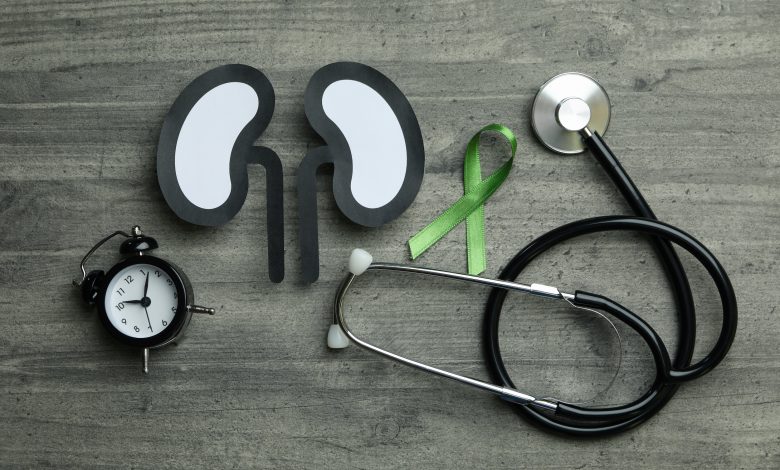
HMC: Covid-19 guidance for patients with kidney disease
حمد الطبية: إرشادات لمرضى الكلى للوقاية من عدوى كورونا
Who is this guidance for?
This guidance is for the people of Qatar with kidney disease or who have undergone a kidney transplant.
What is Coronavirus disease (Covid-19)?
COVID-19 is a highly contagious disease with symptoms including fever, cough and shortness of breath.
How do people get infected?
Coronavirus is transmitted, like any other viruses that attacks the respiratory system, from one infected person to another in the droplets when they sneeze, cough or speak especially if at a distance of less than one or two meters. It can also be transmitted through close contact with the infected person or touching surfaces.
Are patients with kidney disease and who have had a kidney transplant at higher risk?
It is thought that you are at increased risk of severe illness if you contract the virus and it is very important that you are particularly stringent in following the physical distancing measures. For early stage kidney patients or transplant recipients, contact your healthcare professional or nephrologist with any questions or concerns.
What should you do if you are on dialysis?
If you are on dialysis, you should NOT miss your treatments. Your dialysis unit will work with you to ensure you get your treatment.
What about my monitoring and blood tests?
The important thing is to keep safe, so you will still have necessary blood tests, medications and treatments.
How can people with kidney disease strengthen their immune system?
• Don’t smoke
• Remain hydrated
Have a balanced diet, high in fruits and vegetables (or as indicated by your healthcare professionals) and eat less processed meat, less red meat, and fewer sweets
• Although there is not yet a vaccine for coronavirus, people with kidney disease should stay up to date on their vaccinations such as those for pneumonia and flu
• Control other health conditions, such as high blood pressure, high cholesterol and diabetes
• Get adequate sleep
• Maintain regular exercise even if you are staying at home and maintain a healthy weight, as indicated your healthcare professional
• Avoid unnecessary stress, stress can weaken the immune system
What protective measures should kidney patients and transplant recipients take?
• Follow the instructions of MoPH by practicing physical distancing, staying home, avoiding crowds, parks and refraining from touching one another or surfaces
• Take steps to avoid infection, such as washing your hands frequently, avoid touching your face and cooking meats thoroughly
• Always use a face mask and protective gloves when visiting public areas (i.e. grocery shopping or attending an appointment), at work and even at home when there is a family gathering
• Personal hygiene is extremely important for kidney disease and transplant patients at this time of the virus outbreak. Wash your hands with soap and water. If soap and are not available, clean your hands with an alcoholic-based solution (60%) or a sanitizer
• Avoid touching your eyes, nose and mouth (or ensure you wash your hands before and after)
• Clean surfaces touched often like doorknobs, handles, steering wheels, or light switches with a disinfectant to remove the virus
• Ensure you take your medications as prescribed by your doctor
• Prepare a list of your medications and the dosages
• Get adequate refills for medications, sufficient for at least two weeks
• Have the contact information of your health care provider at hand so that you do not need to leave the house, if you become ill
What about children with kidney disease?
The general advice on prevention of transmission, hygiene and social-distancing measures are completely the same between adults and children.
Children identified at higher risk include:
• All children on dialysis
• Children with CKD stage 5, awaiting dialysis or awaiting a transplant
• Children with CKD stage 4, especially those children who have other co-morbidities (other health problems in other organs, such as heart, lungs, liver, and neurology)
• Children with CKD stage 3, if they have other co morbidities (other health problems in other organs, such as heart, lungs, liver, and neurology)
All of these groups should practice strict social distancing. Like adults, if a child is unwell or has a fever this should be discussed with their treating kidney team since self-isolation without notifying your team can present additional risks. These risks include invasive bacterial infections, bacterial peritonitis and haemodialysis line infections that often present with fever alone. Any report of fever should be discussed with your renal team.
• Children with a kidney or other organ transplant, and
• Children taking immunosuppression for other auto-immune or inflammatory kidney conditions
This group of patients are recommended to practice strict self-isolation for a period of 12 weeks throughout the height of the pandemic. Specific instructions have been developed covering immunosuppression type, strength, frequency and length of treatment as well as the severity of the underlying disorder. Ask your doctor for more details
What should people with kidney disease or transplant do if they get the virus?
• If you are showing symptoms such as coughing, sneezing, fever or shortness of breath you may need assessment by healthcare professional. Start self-quarantine, avoid any contact with others and call the national COVID-19 hotline on 16000;
• Practice the “Sick day rules” for people with kidney disease:
• keep hydrated and drink plenty of water
• Reduce sodium (salt) and fat (that leads to higher cholesterol) in your diet
• Do not stop your kidney medication unless directed by your doctor;
• Rest and postpone exercise
• Monitor temperature, when needed use acetaminophen (paracetamol/ Panadol) rather than anti-inflammatory (ibuprofen/ Advil);
• Always follow healthcare professional team recommendations.
ما هي الإجراءات الوقائية التي يجب أن يتخذها مرضی الكلى والذين خضعوا لعملية زرع الكلى؟
. إتبع تعليمات وزارة الصحة العامة عن طريق تطبيق التباعد الجسدي، والبقاء في المنزل، وتجنب التجمعات ومناطق الازدحام والحدائق والامتناع عن لمس بعضهما البعض أو ملامسة الأسطح.
. اتخذ الخطوات المناسبة لتجنب الإصابة بالعدوى، مثل غسل اليدين بشكل متكرر، وتفادي ملامسة الوجه ، وطهي اللحوم جيدا.
. استخدم دائما قناع الوجه والقفازات الواقية عند زيارة الأماكن العامة (مثل متاجر البقالة أو موعد معین)، في العمل وحتى في المنزل عندما يكون هناك تجمع عائلي.
. النظافة الشخصية مهمة للغاية لمرضى الكلى والذين خضعوا لعملية زرع الكلى في فترة تفشي الفيروس. اغسل يديك بانتظام بالماء والصابون. إذا لم يتوفر الماء والصابون، قم بتنظيف يديك بمحلول كحولي (%60 نسبة كحول) أو مطهر
.تجنب لمس عينيك وأنفك وفمك (أو تأكد من غسل يديك قبل وبعد).
.قم بتنظيف الأسطح التي يتم لمسها بشكل متكرر مثل مقابض الأبواب أو المقابض أو عجلة القيادة أو مفاتيح الإضاءة بمطهر لإزالة الفيروس
. تأكد من تناول الأدوية على النحو الذي يحدده الطبيب.
. قم بإعداد قائمة بالأدوية والجرعات.
. إحصل على كمية كافية من الأدوية تكفي لمدة أسبوعين على الأقل.
. إذا كنت تخضع للعلاج الكيميائي، تحدث مع طبيبك حول استمرار العلاج.
. احتفظ بمعلومات الاتصال بمقدم الرعاية الصحية لكي لا تحتاج إلى مغادرة المنزل، إذا مرضت.
ماذا عن الأطفال المصابين بأمراض الكلى؟
إن النصائح العامة حول الوقاية من انتقال العدوى، والنظافة الشخصية وإجراءات التباعد الاجتماعي هي نفسها للكبار والأطفال.
من بين الأطفال الذين تم تحديد أنهم الأكثر عرضة للإصابة :
. جميع الأطفال الذين يخضعون لغسيل الكلى
. الأطفال المصابون بمرض الكلى المزمن-المرحلة الخامسة (5)، بانتظار غسيل الكلى أو عملية الزرع
. الأطفال المصابون بمرض الكلى المزمن – المرحلة الرابعة (4)، وخاصة الأطفال الذين يعانون من أمراض مصاحبة أخرى (مشاكل صحية أخرى في أعضاء أخرى مثل القلب والرئتين والكبد والأعصاب)
. الأطفال المصابون بمرض الكلى المزمن – المرحلة الثالثة (3)، إذا كان لديهم أمراض أخرى مصاحبة مشاكل صحية أخرى في أعضاء أخرى مثل القلب والرئتين والكبد والأعصاب)
يتوجب على كل هذه المجموعات تطبيق إجراءات وتدابير التباعد الاجتماعي بشكل صارم. مثل الكبار، إذا كان الطفل مريضا أو يعاني من الحمى، فيجب مناقشة هذا الأمر مع فريق علاج الكلى لأن تطبيق العزل الذاتي دون إخطار الفريق المعالج قد يمثل مخاطر إضافية. وتشمل هذه المخاطر الالتهابات البكتيرية الغازية والتهاب الصفاق الجرثومي والالتهابات الناجمة عن غسيل الكلى
لمن هذه الإرشادات؟
هذه الإرشادات هي لسكان قطر المصابين بأمراض الكلى أو الذين خضعوا لعملية زرع الكلى.
ما هو مرض فيروس كورونا (کوفید-19)؟
كوفيد-19 هو مرض شديد العدوى مع أعراض تشمل الحمى والسعال وضيق التنفس.
كيف يصاب الناس بالعدوی؟
ينتقل فيروس كورونا، مثل أي فيروسات أخرى تهاجم الجهاز التنفسي ، من شخص مصاب إلى آخر من خلال الرذاذ المتطاير عندما العطس أو السعال أو الكلام خاصة إذا تم ذلك على مسافة أقل من مترين. كما يمكن أن ينتقل عن طريق الاتصال الوثيق مع الشخص المصاب أو من خلال لمس الأسطح.
هل المرضى الذين يعانون من أمراض الكلى والذين خضعوا لعملية زرع الكلى أكثر عرضة للخطر؟
يعتقد أن المرضى المصابين بأمراض الكلى والذين خضعوا لعملية زرع الكلى معرضون أكثر الإصابة بأعراض مرضية حدة وخطيرة في حال الإصابة بالفيروس. بالتالي، من المهم للغاية أن تكون
صارقا في اتباع إجراءات التباعد الجسدي يتوجب على مرضى الكلى في المرحلة المبكرة أو الذين خضعوا لعملية زرع، الاتصال بأخصائي الرعاية الصحية أو طبيب الكلى في حال كان لديهم أي أسئلة أو مخاوف.
ماذا يجب أن تفعل إذا كنت تخضع لغسيل الكلى؟
إذا كنت تخضع لغسيل الكلى، فلا يجب أن تفوت جلسات العلاج. ستعمل وحدة غسيل الكلى معك لضمان حصولك على العلاج.
ماذا عن المراقبة والتتبع وفحوصات الدم؟
أهم شيء هو الحفاظ على سلامتك، لذلك ستستمر بالخضوع لفحوصات الدم والحصول على الأدوية والعلاجات اللازمة.
كيف يمكن لمرضى الكلى تقوية جهازهم المناعي؟
. عدم التدخين
. المحافظة على نسبة السوائل في الجسم.
. اتباع نظام غذائي متوازن، غني بالفاكهة والخضروات (أو على النحو الذي يشير إليه أخصائيو الرعاية الصحية) وتناول كميات أقل من اللحوم المصنعة واللحوم الحمراء والحد من تناول الحلويات.
. على الرغم من عدم وجود لقاح مضاد الفيروس كورونا، يجب على المصابين بالسرطان التأكد من أخذ جميع لقاحاتهم مثل اللقاح ضد الالتهابات الرئوية ولقاح الإنفلونزا.
. إدارة الحالات الصحية الأخرى، مثل ارتفاع ضغط الدم وارتفاع الكوليسترول والسكري.
. الحصول على قسط كاف من النوم . ممارسة التمارين الرياضية بانتظام حتى لو في المنزل والحفاظ على وزن صحي، وفقا لتعليمات مقدم الرعاية الصحية.
. تجنب الإجهاد غير الضروري، الذي من شأنه أن يضعف الجهاز المناعي.
غالبا ما تتجلى عبر الحمى فقط. لذا في حال ظهور أي مؤشرات للحمى، يجب مناقشة ذلك مع فريق علاج الكلى.
. الأطفال الذين خضوع لزرع كلى أعضاء أخرى،
. الأطفال الذين يتناولون أدوية كبت المناعة في حالات أمراض الكلى الالتهابية أو أمراض الجهاز المناعي الأخری
ويوصى أن تقوم هذه المجموعة من المرضى بتطبيق إجراءات وتدابير صارمة للعزل الذاتي لمدة 12 أسبوعا طوال فترة ذروة الجائحة. وتم وضع تعليمات محددة تغطي نوع الكبت المناعي وقوته وتواتره وطول فترة العلاج وكذلك شدة المرض الأساسي. اسأل طبيبك لمزيد من التفاصيل.
ما هي الخطوات التي يجب أن يتبعها مرضى الكلى والذين خضعوا لعملية زرع الكلى إذا أصيبوا بالفيروس؟
إذا ظهرت عليك أعراض مثل السعال أو العطس أو الحمى أو ضيق التنفس، فقد تحتاج إلى الخضوع لفحص من قبل أخصائي الرعاية الصحية.ابدأ بعملية الحجر الذاتي، وتجنب أي اتصال مع الآخرين واتصل بالخط الساخن الوطني الخاص بكوفيد-۹۱ على الرقم : 16000
طبق قواعد اليوم المرضي” لمرضى الكلى :
. إشرب الكثير من الماء، وحافظ على نسبة السوائل في الجسم
.قلل من نسبة الصوديوم (الملح والدهون التي تؤدي إلى ارتفاع نسبة الكوليسترول في نظامك الغذائي
. لا تتوقف عن تناول دواء الكلى إلا بتوجيه من طبيبك
. أحصل على قسط كاف من الراحة وقم بتأجيل ممارسة التمارين الرياضية .قم بمراقبة درجة الحرارة، وعند الحاجة، تناول الأسيتامينوفين (باراسيتامول / بانادول) بدلا من مضادات الالتهاب (إيبوبروفين / أدفيل)
. اتبع دائما توصيات فريق الرعاية الصحية



